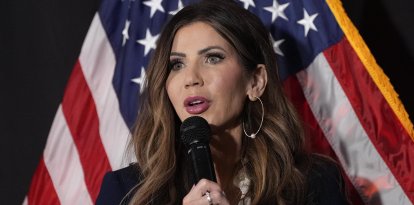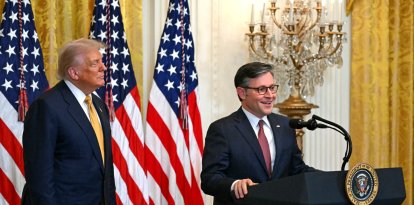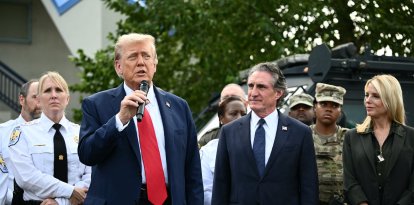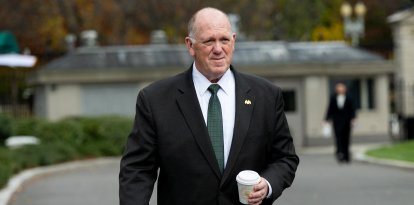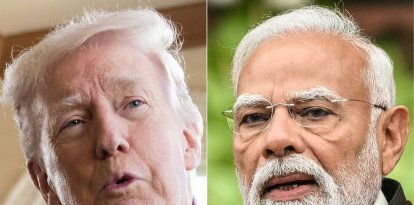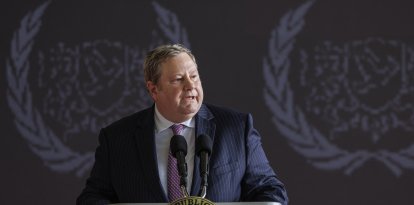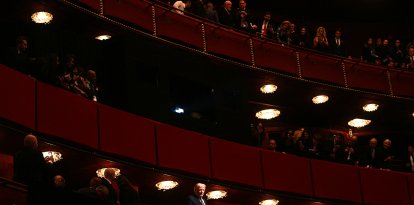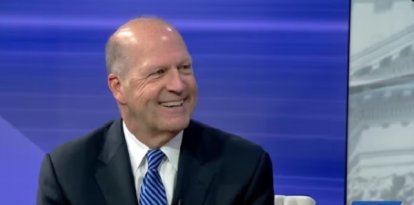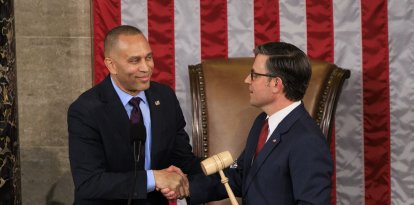Iran humiliates Joe Biden: Will use unfrozen US money as it pleases
The Iranian president's statement about the use of the money reinforces the concern that it could be used for devious purposes.

President of Iran, Ebrahim Raisi / Wikimedia Commons
Iranian President Ebrahim Raisi said he will use the funds released by the United States however he wants. This reaffirms critics' concerns about the inequitable agreement to release five hostages as the money could be used for nuclear programs or any other deceptive purpose.
Last Monday, the Biden Administration approved the release of 6 billion Iranian dollars that were frozen by the US government under the condition that the funds would only be used for humanitarian purposes, such as food and medicine.
However, on Tuesday an interview was broadcast in which Raisi said that this money belongs to his country and that, therefore, they will be the ones who decide how it will be spent. "This money belongs to the Islamic Republic of Iran, and naturally, we will decide, the Islamic Republic of Iran will decide to spend it wherever we need it," he said, stressing that for him a humanitarian purpose "means whatever the Iranian people [need]" and that it will be their government that determines what those needs are.
The Iranian regime's use of this money was precisely one of the main concerns of critics of the deal between the Iranian regime and the Biden administration.
Behnam Ben Taleblu, a fellow at the Foundation for Defense of Democracies, was among those who felt that the release of the money ignored why it had been frozen in the first place.
Even Obama "who signed sanctions bills into law creating those escrow accounts, did not trust Iran to stop funding its nuclear or military programs using oil money," Taleblu said during an interview with Fox News.
U.S. insists Iran won't be able to use funds as it wants
After Raisi made those statements, the Biden Administration assured that it will be the United States that approves how the 6 billion dollars released will be used, since it will be controlled in a bank in Qatar.
"There’ll be a check on what they can withdraw based on aid organizations ... We will have visibility and oversight over each of those withdrawal requests. And if we don’t approve it, it won’t get approved for delivery to Iran. So, this is not a blank check for them. It is very much going to be monitored. And there will be quite a bit of oversight before (...) any money can be spent," said White House National Security Council coordinator John Kirby.
However, as Dan De Luce, the national security and global affairs reporter for NBC News, explained, even if the Iranian president really could not use that 6 billion dollars as he wants, this money will free up other money that Raisi can choose how to use.
"That’s the criticism, right? That, on the one hand, the money is monitored. It is tracked. It’s in Qatar. It’s not sitting in a bank in Tehran. And they can only use it for these items that are not under sanctions, for food or medicine. However, if you get $6 billion, that frees up other money. So, obviously, critics are honing in on that and saying, essentially, we’re allowing them — we’re freeing up money that they would like to use for other purposes," he said.
This agreement could incentivize hostage-taking
Another concern of critics is that this deal could be seen as a kind of reward for detaining American hostages, which in turn would incentivize more kidnappings.
"Instead of making it an even trade, we also offer to unfreeze $6 billion in Iranian funds, rewarding them for detaining hostages, incentivizing the kidnapping of future Americas, and possibly funding more terror," said famed radio host Charles J. Kirk.
That view coincides with that of Jim Risch, a member of the Senate Foreign Relations Committee, who stated that "this creates dangerous incentives to capture Americans abroad, provides Iran a cash windfall as it continues to attack U.S. troops and sell drones to Russia."













